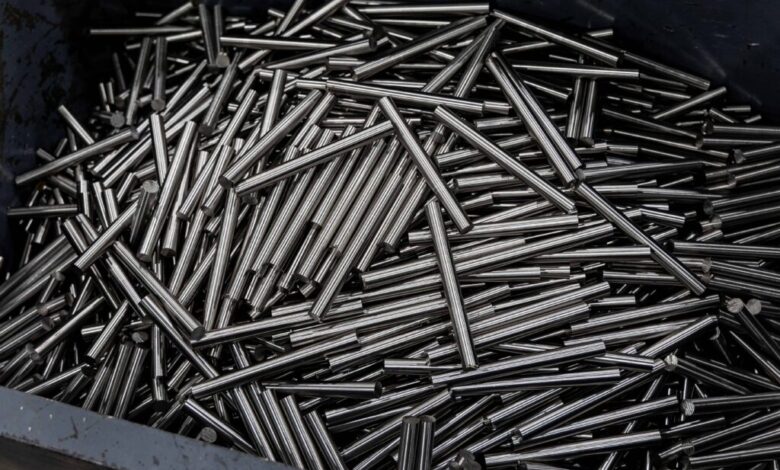Comparing Nickel Alloys Materials Suppliers: A Comprehensive Guide

Nickel alloys are indispensable in numerous industries due to their exceptional properties, such as high-temperature resistance, corrosion resistance, and mechanical strength. As the demand for these alloys grows, so does the number of suppliers in the market. Choosing the right supplier is crucial for ensuring the quality and reliability of the materials. This comprehensive guide will help you compare nickel alloys materials suppliers by examining key factors that influence your decision.
Quality of Materials
The quality of nickel alloys is paramount, as it directly impacts the performance and durability of your final products. When comparing suppliers, consider the following:
- Certifications: Suppliers should hold relevant certifications such as ISO 9001 for quality management systems. Industry-specific certifications, like AS9100 for aerospace or ISO/TS 16949 for automotive, indicate a supplier’s adherence to stringent quality standards.
- Testing and Inspection: Reputable suppliers conduct rigorous testing and inspection of their materials. Look for suppliers that provide detailed test reports, material certifications, and traceability information.
- Customer Reviews: Customer feedback Nickel Alloys Materials Supplier and reviews can provide insights into the consistency and reliability of the supplier’s products.
Product Range
A diverse product range is beneficial for meeting various application requirements. Evaluate suppliers based on:
- Variety of Alloys: Suppliers should offer a wide range of nickel alloys, including Inconel, Monel, Hastelloy, and others. Each alloy has unique properties suited for different applications.
- Forms and Sizes: The availability of different forms (sheets, plates, bars, wires, etc.) and sizes can simplify procurement and reduce the need for further processing.
- Customization: Some applications require customized alloys with specific compositions. Suppliers who offer customization options can be invaluable in such cases.
Technical Expertise and Support
Technical support is crucial when dealing with complex materials like nickel alloys. Compare suppliers based on:
- Expertise: Suppliers with experienced metallurgists and engineers can provide valuable insights and assistance in material selection and application.
- Technical Resources: Availability of technical resources such as data sheets, technical articles, and case studies can help you make informed decisions.
- Customer Support: Responsive and knowledgeable Incoloy 825 Strip customer support teams can assist with inquiries and troubleshooting.
Reliability and Delivery
Timely delivery of materials is essential to avoid production delays. Consider the following when comparing suppliers:
- Delivery Performance: Suppliers with a proven track record of on-time deliveries are more reliable. Look for performance metrics or customer testimonials regarding delivery.
- Logistics and Inventory: Suppliers with efficient logistics networks and adequate inventory levels can handle urgent requirements and minimize lead times.
- Flexibility: The ability to accommodate changes in order quantities and delivery schedules can be beneficial for managing fluctuating demand.
Pricing and Transparency
Cost is a significant factor, but it should not compromise quality. Compare suppliers based on:
- Pricing Structure: Competitive pricing is important, but ensure that the quality of materials is not compromised. Compare quotes from multiple suppliers to get a fair market price.
- Transparency: Clear and transparent pricing, with no hidden fees, helps in budget planning. Suppliers who provide detailed cost breakdowns are preferable.
- Value-Added Services: Some suppliers offer additional services such as machining, heat treatment, and testing within their pricing structure. These can add value and convenience.
Sustainability and Ethical Practices
Sustainability and ethical practices are increasingly important in material sourcing. Evaluate suppliers on:
- Environmental Practices: Suppliers should follow environmentally friendly practices, such as using recycled materials and reducing waste. Certifications like ISO 14001 for environmental management can be indicative of their commitment.
- Ethical Sourcing: Ensure that suppliers adhere to ethical sourcing practices, including fair labor conditions and responsible procurement of raw materials.
- Corporate Social Responsibility (CSR): Suppliers with active CSR programs demonstrate their commitment to social and environmental responsibilities.
Reputation and References
A supplier’s reputation can provide valuable insights into their reliability and quality. Consider the following:
- Industry Standing: Suppliers with a strong presence and positive reputation in the industry are more likely to be reliable partners.
- References and Case Studies: Ask for references and case studies from the supplier. Direct feedback from existing customers can provide a realistic picture of the supplier’s performance.
- Site Visits: If possible, visiting the supplier’s facility can give you firsthand insights into their operations, quality control processes, and overall capabilities.
Conclusion
Comparing nickel alloys materials suppliers involves a thorough evaluation of multiple factors, including quality, product range, technical expertise, reliability, pricing, sustainability, and reputation. By carefully considering these aspects, you can select a supplier who not only meets your material requirements but also aligns with your business values and operational needs. This comprehensive approach ensures a reliable supply chain, high-quality end products, and a strong partnership with your supplier.





